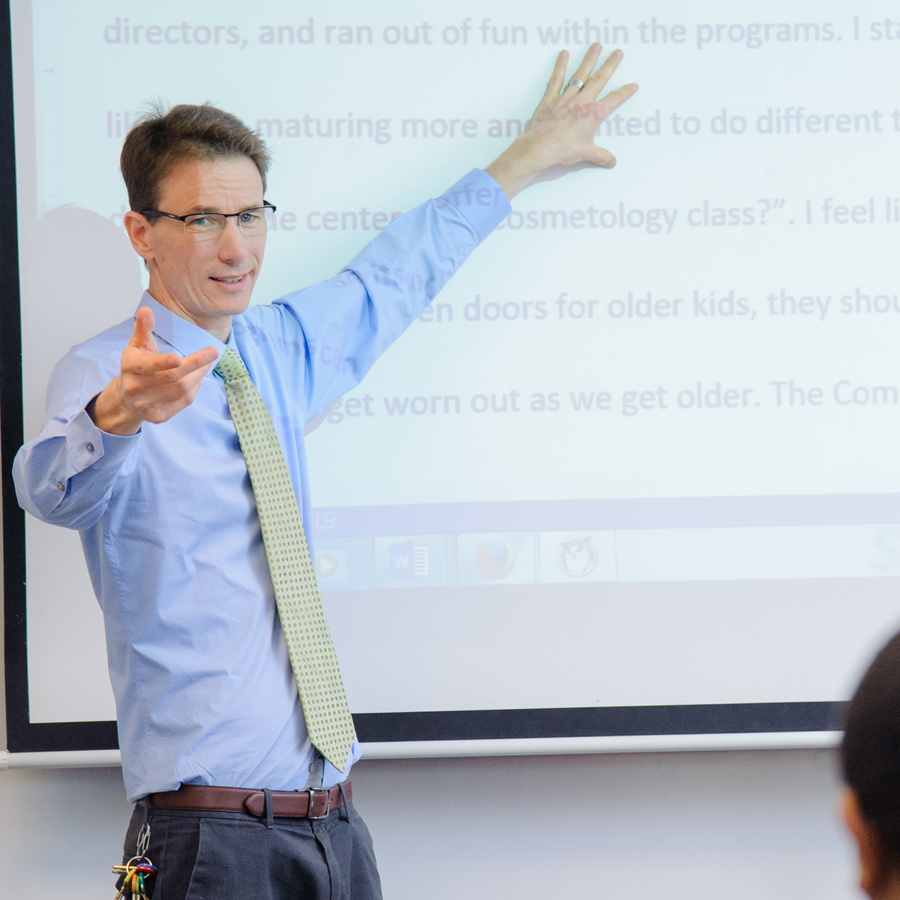Each year, the Parkland College Teaching Excellence Award is presented to a full- or part-time faculty member who is doing an exceptional job delivering their course content, engaging students in learning, and continuing to grow through professional development activities.
The recipient of the Parkland Teaching Excellence Award is named each fall. The awarding process involves being nominated for the award, department chair endorsement, the submission of materials that address the established criteria, and the evaluation of the materials by the PCA Professional Development Subcommittee for Faculty.
The benefits for the award recipient include:
- $1,000 for professional development
- registration to a national teaching and learning conference (to be determined by the College)
- recognition at commencement and at a Parkland College Board of Trustees meeting
2025 Parkland Teaching Excellence Award Recipient
Steven Rutledge

The PCA Professional Development Subcommittee for Faculty has selected English Professor Steven Rutledge for the 2025 Teaching Excellence Award. Rutledge has been a member of the Humanities full-time faculty since 2007, where he has taught developmental and college-level reading and writing. He has chaired the Parkland Transitional English Local Advisory Panel (LAP), served on the Statewide Transitional English Portability Panel, and worked closely with District 505 high schools to develop Transitional English curricula for their schools to help students receive guaranteed placement in college-level English at participating state community colleges and universities.
Rutledge has made contributions to the Writing Lab and the Learning Commons, including participating in the Learning Commons Reading Initiatives Group and creating videos on reading and writing, some of which are also used by other departments. His students consistently report that what they have learned in his classes helps give them the skills to be successful in their other classes.